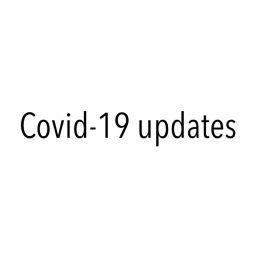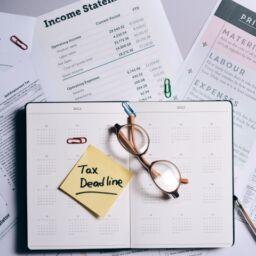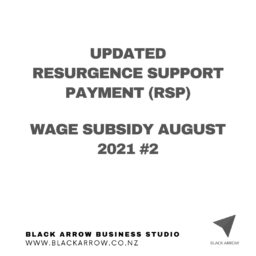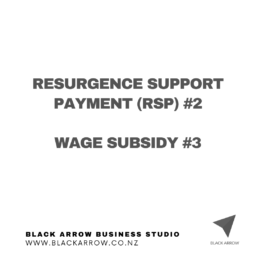
Get ready for tax season by being organised and seeking appropriate assistance. Here are some tips to help you prepare.
No one wants to be caught off guard by a large bill, so it’s important to plan ahead and set aside money for taxes and levies.
Here are some steps you can take:
- Create a separate account that earns interest specifically for tax and ACC payments and set aside a portion of each payment you receive to contribute to this account.
- Remember to withdraw the necessary funds in time to make any payments that are due.
The interest earned can be used to cover your ACC levy, so you may not need to allocate additional funds for it.
Small businesses often delay filing tax returns with Inland Revenue (IR), leading to a frenzied rush at the last minute. To avoid this stress, follow these simple tips for preparing for tax time. Keeping accurate records, whether in digital, paper, or cloud format, is essential.
Starting out
DO NOT assume that your first year in business is tax-free. You can either pay it in a lump sum after filing your first return, or you can use the Accounting Income Method (AIM) and pay small amounts during the year when your business makes an accounting profit.
- Attend a free Inland Revenue seminar.
- Register for online services at myIR.
- Understand business tax basics with Inland Revenue’s Smart Business guide (IR320).
- Keep good records, as it’s not only a legal duty but also helps you assess the financial health of your business.
- Consider seeking expert advice to get set up correctly.
- Inform Inland Revenue if someone else looks after your tax tasks, such as a tax agent. They will need access to your myIR for filing.
- Think about using accounting software to manage your GST, provisional tax, and payday filing.
myIR — Inland Revenue
Smart Business (IR320) — Inland Revenue guide
GST
Do not hold onto the GST you charge. It is not your money but collected on behalf of the government.
- Check if you need to register for GST.
- Once registered, it is essential to start charging GST.
- Code receipts and invoices as you go to show what they’re for.
- Set aside the collected GST in a high-interest account until it’s time to pay it. The interest earned on this account could help cover your ACC levy.
- Deregister when it’s necessary, to avoid filing nil returns and save time.
Income tax
DO NOT forget to pay your income tax. Although the payment date may be a few months after you file your tax return, it’s important to prepare for it.
- To help cover your tax bill, it’s recommended to regularly put aside at least 20% of your income.
- Consider hiring a tax agent as their knowledge could save you time and money.
- Always file your tax return on time to avoid any penalties.
- If you think you might have problems paying, inform Inland Revenue as soon as possible. They might be able to help you come up with a solution.
Income tax and provisional tax
PAYE
DO NOT file late as penalties can be higher than your PAYE deductions.
- Register as an employer online with Inland Revenue.
- Every time you pay your employees, you must file an employment information form. If you file online, complete this within two working days of the payday.
Only deduct child support for an employee if Inland Revenue specifically instructs you to do so.
Payday filing — Inland Revenue
Register as an employer — Inland Revenue
If the unexpected happens
DO NOT forget to deregister for GST and as an employer if you close down your business.
- In the event of a major disaster, you must still file returns even if you’re unable to pay.
- If your records are damaged, inform Inland Revenue as soon as possible.
- To help keep your business afloat, Inland Revenue may suggest payment options.
- If you’re concerned about being unable to pay due to operating at a loss, get in touch with Inland Revenue.
What to do if you’re operating at a loss
Planning for the unexpected: Natural disasters
If you need advice, you can choose between one-off or ongoing support from an expert.
Here are some steps you can take:
- Assess your needs. Are your tax affairs complex or do you feel confident enough to handle them on your own?
- Talk to accounting software providers to see how their software can assist you.
- Consider getting help for specific situations to avoid ongoing costs. Choose what you want help with and what you can handle.
- Do some research before selecting anyone and determine your needs and the kind of advice you need. A chartered accountant, qualified bookkeeper or tax agent might be appropriate. Their fees and expertise will vary.
Getting help from professionals can be expensive, but their knowledge and expertise in tax matters can save you more money in the long run.
You must:
- Keep all expense receipts and invoices that you receive.
- Keep copies of all invoices that you send out.
- Keep records of any other types of income or expenses, such as dividends or rental income.
- Use your business account to pay for anything that could be claimed as a business expense, so that you have a paper (and electronic) trail.
- Keep all records, whether in electronic or paper form, for seven years.
You should:
- Set up a filing system that suits you, so that you can easily locate your records.
It can be easier to keep records if you use online accounting software.
All your records are stored in one place and are tallied automatically at tax time. Accounting software can also help you file your GST, manage your provisional tax using the AIM option, and manage your payday filing.
Whether you prefer paper-based or online systems, choose the one that suits your business.
You should:
- Talk to other business owners and try out a few systems to figure out what works best for you — there are many online software options available that can save you time at a low cost, or stick with a paper-based system.
- Consider hiring an expert to get started. Proper setup and implementation can save you time and reduce stress in the long run.
Some accounting systems provide a service that enables businesses to file GST and payday filing returns directly to Inland Revenue. Inland Revenue’s myIR service allows for online payment of GST, payroll, and other taxes.
myIR — Inland Revenue
Are you struggling with accounting and business management for your business? We are here to help! Get in touch with us to discuss how our expert services can support your business’s success. Contact us today to schedule a free consultation and see how we can add value to your operations.














